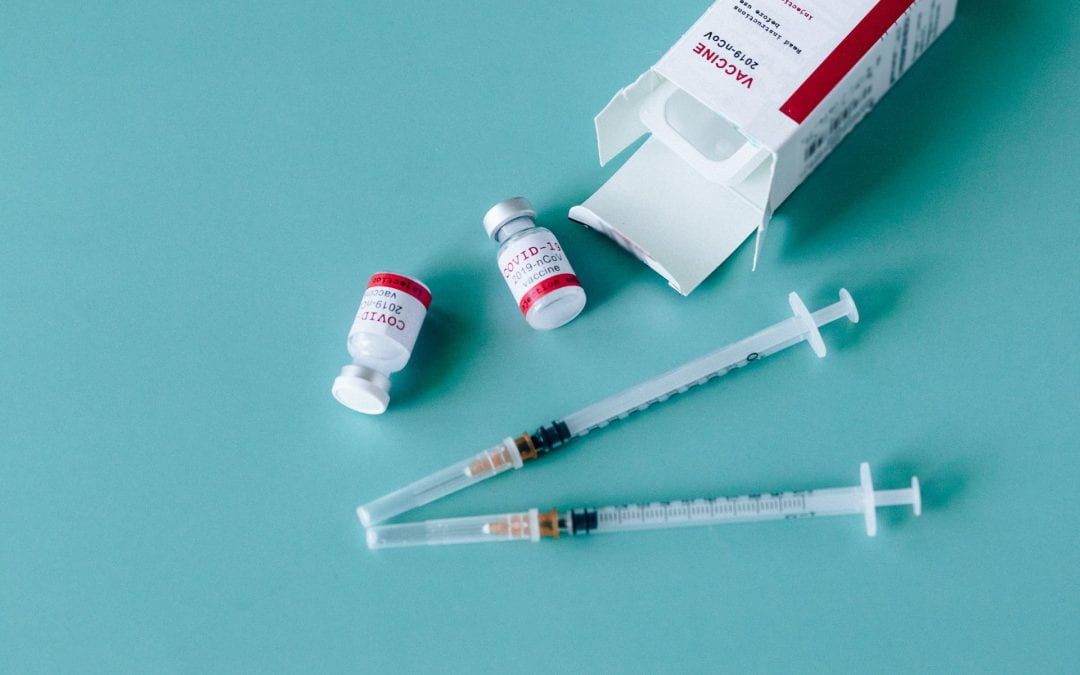When the World Trade Organization (WTO)’s Council on Trade-Related Aspects of Intellectual Property Rights (TRIPS) reconvenes in 2021, it will continue to consider a proposal to temporarily waive some provisions of the TRIPS Agreement—a 1995 agreement establishing standards of intellectual property protection among its members—in an effort to ensure equal access to Covid-19 vaccines around the globe. Proposed by India and South Africa in October 2020 and co-sponsored by Kenya, Eswatini, Pakistan, Mozambique, and Bolivia, the waiver would suspend sections of the TRIPS Agreement covering copyright, industrial design, patents, and trade secrets. This would last for a predetermined number of years, or “until widespread vaccination is in place globally and the majority of the world’s population is immune.” Some experts estimate that this could take until 2024.
Support for the proposed waiver is divided along the lines of countries’ wealth, with 100 low- and middle-income countries supporting the proposal and primarily high-income countries opposing it. Many of the countries that oppose it—including the United States, United Kingdom, Canada, and the European Union—have cornered the market on pre-ordering vaccines, and are home to the pharmaceutical companies that developed them.
Countries and organizations that support the waiver argue that a suspension of intellectual property protections is necessary to mass-produce low-cost, generic versions of vaccines, making them accessible in low-income countries otherwise priced out of the patented, “name-brand” versions. In a New York Times op-ed, health activist Achal Prabhala and economists Arjun Jayadev and Dean Baker argue that waiving patent protection for Covid-19 vaccines will “help everyone,” including countries opposing the TRIPS waiver, because without the ability to produce generic versions, “there aren’t enough vaccines to go around in the richest countries on earth, let alone the poorest ones.” Additionally, Médecins Sans Frontières highlights the existing IP restrictions keeping much-needed diagnostic materials and treatments expensive and inaccessible during a global pandemic, and the role of government and philanthropic funding in the research and development effort of Covid-19 vaccines, as reasons to waive the TRIPS provisions and allow countries to produce generic versions of patented vaccines and other pharmaceuticals.
Supporters of the proposal seek to avoid repeating the mistakes of the global response to the HIV/AIDS crisis in the 1990s and early 2000s, when patients in low-income countries were priced out of life-saving treatments available in high-income countries and major pharmaceutical companies sued South Africa for circumventing patents to produce low-cost generic versions of antiretroviral drugs. The proposed TRIPS waiver has been categorized as a necessary expansion of the 2001 Doha Declaration, which affirmed that the TRIPS agreement “should not prevent members from taking measures to protect public health.” As affirmed by the Doha Declaration, the TRIPS agreement allows compulsory licensing (the circumvention of patent rights in the case of “a national emergency or other circumstances of extreme urgency”) and parallel importation (the importation of patented products without the patent-holder’s consent from another country where prices are lower), but supporters of the waiver argue that these existing options are insufficient given the timeline and scope of the need to respond to the Covid-19 pandemic.
Opponents of the proposed TRIPS waiver argue that it would jeopardize future innovations in the pharmaceutical industry. Writing in the Wall Street Journal, former World Intellectual Property Organization deputy director general James Pooley argues that “if we expect private companies to create treatments” to cure and prevent illness, “countries need to protect the incentive to spend billions of dollars on a yearslong R&D process.” Other critics point out that even if patent protection is waived for Covid-19 vaccines, lack of production capacity would still be a barrier for many low- and middle-income countries to take advantage of the release of information and ‘homebrew’ the vaccine.
Other opponents of the measure argue that the existing pathways for emergency accessibility of patented pharmaceuticals under the TRIPS Agreement are sufficient, and highlight that a number of companies have already announced plans to make their Covid-19 vaccines accessible in low- and middle-income countries. AstraZeneca and Johnson & Johnson have announced licensing and technology transfer agreements with manufacturers in India and South Africa, respectively. Thomas Cueni, the director general of the International Federation of Pharmaceutical Manufacturers and Associations, wrote in the New York Times that intellectual property protections are the reason that these “companies can afford to license patents for free, or sell drugs at cost,” and should be maintained. Additionally, many of the countries that oppose the proposed waiver—including the United Kingdom, the European Union, and Canada—have donated to the COVAX initiative, a World Health Organization-led effort to ensure access to Covid-19 vaccines for its 189 members, including 92 low- or middle-income countries that will receive free vaccines funded by wealthier members’ donations.
It remains to be seen how the TRIPS Council will decide South Africa and India’s proposal when it reconvenes—likely before its next scheduled formal meeting, in March 2021, given the urgency of the ongoing pandemic, which has caused over one million deaths worldwide. Whether through the proposed waiver or other means, it is vital to ensure that low- and middle-income countries are able to access and distribute Covid-19 vaccines to their citizens.
Author Biography: Alessandra Palazzolo is a moderator of the George Washington International Law Society’s International Law and Policy Brief. She is a J.D. candidate at the George Washington University Law School and a graduate of the Elliott School of International Affairs.

